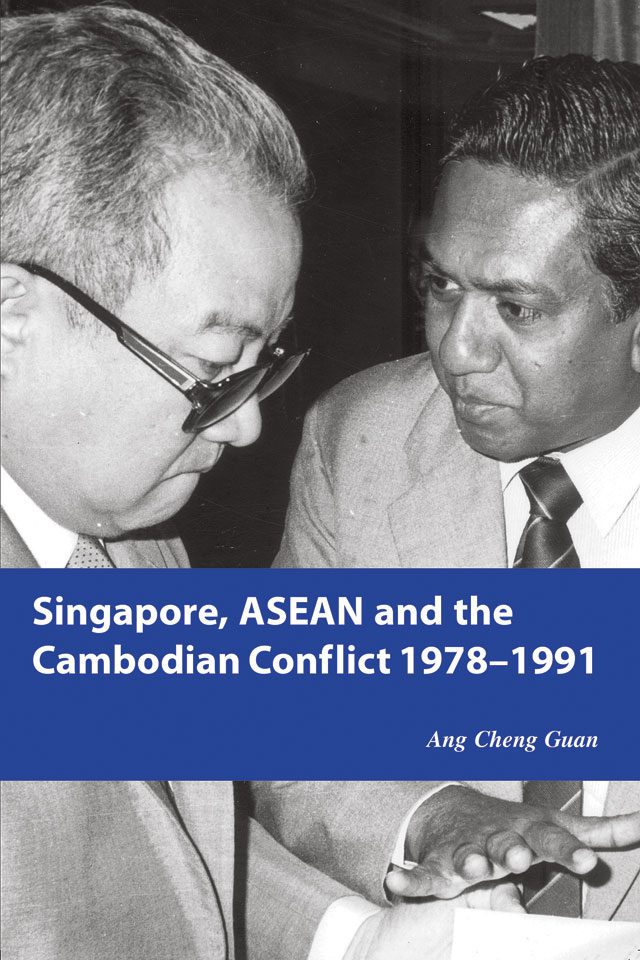In his new book, Singapore, ASEAN and the Cambodian Conflict 1978-1991, Ang Cheng Guan explores the resolution to Vietnam’s 1978 invasion of Cambodia. Here, he discusses Asean’s diplomatic efforts during that period, and how they have contributed to the bloc today
 Would it be fair to say that Asean lacked credibility prior to resolving the Cambodia situation?
Would it be fair to say that Asean lacked credibility prior to resolving the Cambodia situation?
Asean was formed in August 1967 and it required time and political will for the five countries to gel, which was not easy given their past experiences with each other. Those were the ‘teething’ years. In fact, although Asean was formed in 1967, Asean officials only got to know each other well after 1975 through the meetings and interactions leading to the inaugural Asean Summit in 1976. The Cambodia issue gave Asean members the first big opportunity to show the world that they could work effectively together.
In the book, Cambodia is described as “the greatest diplomatic success of Asean’s first quarter-century”.
The fact that a band of five developing countries was able to keep the world’s attention on one issue for more than a decade and succeed in achieving its objective is certainly a success story. Asean has done well post-Cambodia and proved to the naysayers that the bloc was more than a one-issue set-up, as seen in the realisation of its organisational aim of uniting all the nations of Southeast Asia within one entity. This took place in 1999 when Asean became a truly regional organisation. Before that, Asean was a sub-regional organisation.
Singapore believed that no foreign military intervention should be allowed to overthrow a legally constituted regime – and if this principle were to be violated it would create a
dangerous precedent.

In explaining its strong stance against the Vietnamese, Singapore said it was because “Cambodia’s problems could become Singapore’s problems in the future”.
The key point is that, as a small state, Singapore is always vulnerable and therefore cannot keep quiet when the principle of non-intervention is violated. You never know when you will become the next Cambodia.
What role exactly did Singapore play?
Singapore, along with the other Asean countries, persistently pressured the Vietnamese to withdraw from Cambodia by giving support to the Coalition Government of Democratic Kampuchea (CGDK), which was formed to challenge the Vietnamese-installed regime. It also doggedly kept the Cambodian issue on the international agenda for over a decade until the Vietnamese finally withdrew. This surprised the Vietnamese, who had expected the world to forget about Cambodia’s problems in two weeks.
How has the situation proved significant for Singapore and Asean as a whole?
For Singapore, I believe it is significant that the principle of non-intervention has been upheld. It may have taken more than a decade, but upholding it is critical. For Asean as a whole, today’s ten-member bloc would not have materialised had the Cambodia problem not been resolved.
The numerous opportunities for the Asean officials to meet and interact in coordinating intra-Asean decisions and policies were also important. These officials subsequently rose in rank in their respective countries. Their familiarity and rapport with their counterparts is an important factor that contributes to the cohesion of Asean today.
Considering its economic strength, can Singapore play a similarly important role in establishing the Asean Economic Community (AEC)?
Singapore is already playing a vital role in establishing the AEC. I do not think Asean needs a catalyst [such as the Cambodian conflict]. I believe the Asean member states realise the need for an economic community to remain competitive in the global economic arena.I am sure Singapore will work hand-in-hand with its counterparts – notably Malaysia, which assumes the Asean chair in 2015.
Last month Asean held its 23rd Summit in Brunei. What are your thoughts on the association’s current-day state?
There were multiple challenges when Asean consisted of just five members, so nobody should be surprised that there will be even more hurdles to overcome with ten members. It needs time and, most importantly, political will for all ten countries to gel. My sense is that the Asean member states do feel some pressures, for example, economic competition from outside the region and the US-China rivalry. Hopefully these external pressures will start to bring the members closer together, faster.


